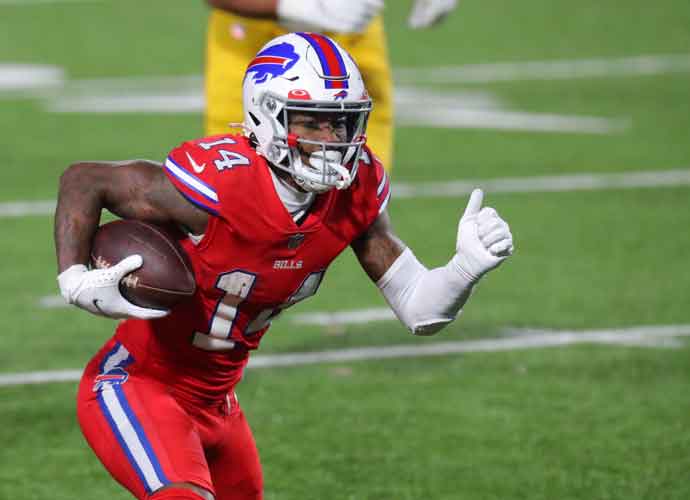Buffalo Bills GM Brandon Beane Explains Surprising Early Trade Of Stefon Diggs
The Buffalo Bills made the strategic decision to trade star wide receiver Stefon Diggs this offseason, incurring a substantial financial hit to their salary cap. This move, which cost the team over $31 million in dead cap space, set a record for a non-quarterback trade. General manager Brandon Beane explained the rationale behind the trade timing during an appearance on The Athletic Football Show, emphasizing the importance of clearing Diggs’ contract from their books sooner rather than later.
Beane said to CBS Sports, “A player of his caliber, you weigh a lot of things. But ultimately, we just talked about the [salary] cap.” He expressed that the team preferred to absorb the financial impact immediately rather than spreading it over multiple years. “If we tried to come up with some way to split it up too many different ways, it’s just like that albatross hanging on your neck all year,” Beane said, highlighting the long-term benefits of their decision.
Diggs had shown signs of dissatisfaction with the team’s direction despite his success as Josh Allen‘s top target. This dissatisfaction and financial considerations led the Bills to trade him to the Houston Texans in a swap of draft picks. The Bills incurred a $31.096 million dead-cap hit for 2024, reducing their cap space by approximately $4 million. However, this move also freed up a projected $19 million cap space for 2025 by offloading the remainder of Diggs’ four-year, $96 million contract extension signed in 2022.
Beane explained that this approach allows the team to avoid future financial constraints that could hamper their competitiveness. “I’m super-competitive,” he said. “I’m gonna be ripping myself the minute we have to walk into a year, and I feel like we gotta play with one arm tied behind our back because the cap is what it is. … We got Josh Allen, and we want to compete every single year for a championship.”
Subscribe to our free weekly newsletter!
A week of sports news in your in-box.
We find the sports news you need to know, so you don't have to.
To compensate for Diggs’s loss, the Bills restructured their receivers with a mix of lower-cost veterans such as Curtis Samuel and Marquez Valdes-Scantling. They also selected second-round draft pick Keon Coleman. Beane humorously described the revamped receiver room as “like Baskin-Robbins,” indicating the variety of options now available to the team.
By taking an immediate financial hit, the Bills aim to maintain their competitiveness in the present while preparing for greater financial flexibility and stability in the coming seasons.
Get the most-revealing celebrity conversations with the uInterview podcast!






Leave a comment